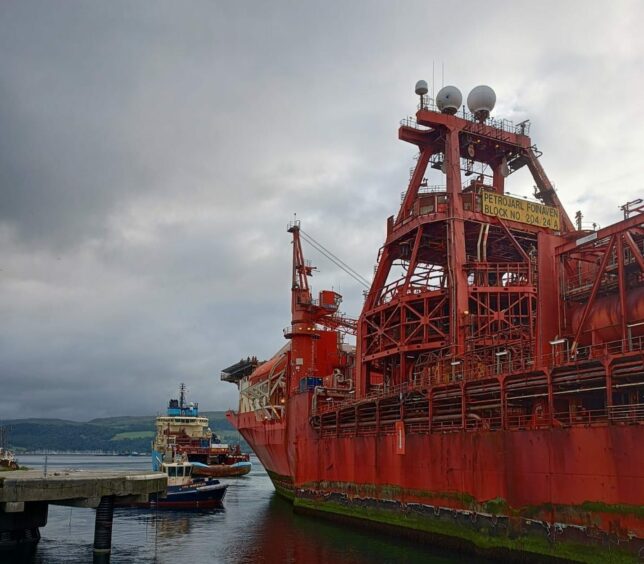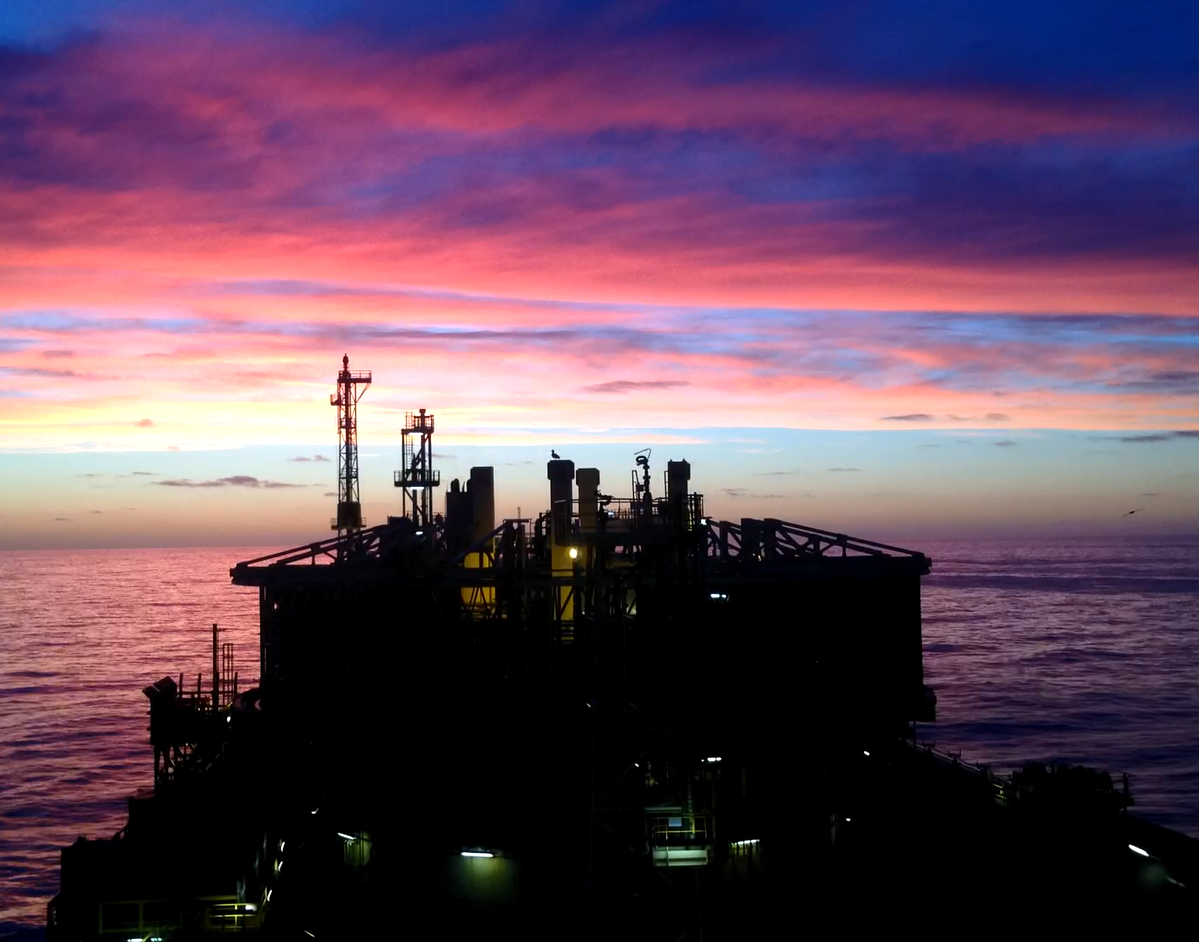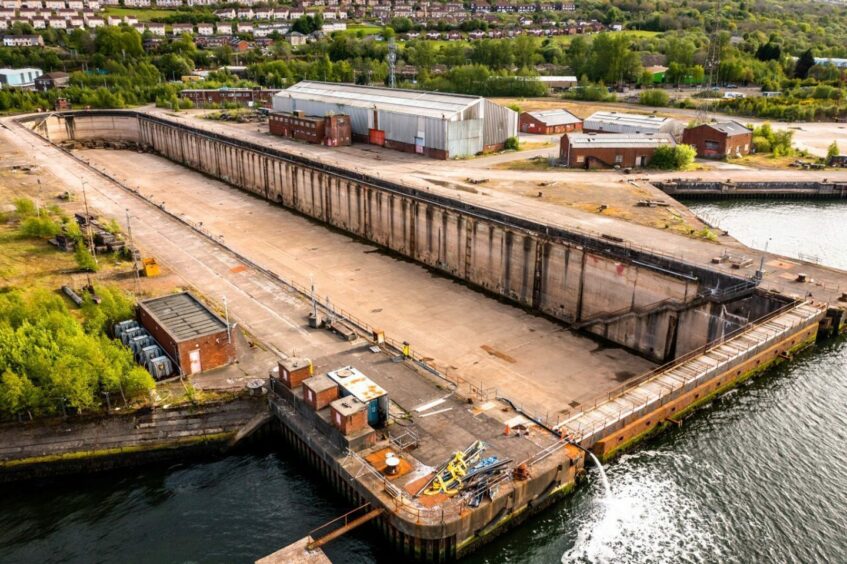
A decommissioning base on the Clyde has said it is the “ideal location” for break-up of the Foinaven FPSO amid concerns the UK could miss out on the work.
Atlas Decom has a long term lease at Inchgreen Drydock, just 20 nautical miles away from Hunterston where the vessel now temporarily sits after more than 20 years at a BP oilfield west of Shetland.
However, it’s understood that Denmark, alongside the UK, is in the running for the vessel’s decommissioning work.
Teekay, which previously owned the vessel, said this month that it has sold the ship to an undisclosed buyer – and has not replied to requests for further information.
But Atlas Decommissioning argues Inchgreen is the right call, from an environmental perspective and as a boost to UK industry.
The company, a sister of shipping firm Atlas Commodities, has a team of specialists formerly of firms including Veolia, Able UK and Heerema, with experience including delivery of the Shell Brent platforms at Teesside.
Earlier this year the company reopened Inchgreen, a former shipbuilding site, as a decom base.
“This project was very much at the forefront of our focus when we took this dock over,” says managing director Mike Dixon.
“We’ve assembled a team unrivaled in the industry in terms of the decommissioning experience, and we’ve got a project history of over 500,000 tonnes of vessels and marine structures – the dry dock offering is the most advantageous opportunity for destructing a vessel such as the Foinaven FPSO.”
Environmentally, Mr Dixon points to the relatively low carbon footprint of the short tow to Inchgreen, as well as the drydock being the “most appropriate solution for disposal” because any potential spill from the vessel would be contained there.
Other options may include an open water facility elsewhere, which would lack those benefits, he said.
“That’s why, environmentally, we have organisations like Greenpeace, NGOs, who are interested in in understanding if this is going to be a drydock disposal opportunity.”
Boost for UK plc
Boosting decommissioning in the UK supply chain is another pillar of the argument, particularly for a vessel which has operated in the country’s waters since 1997.
Mr Dixon points to that being aligned with the North Sea Transition Deal, signed in 2021, when the sector committed to 50% UK local content across oil and gas projects by 2030, including decommissioning.
“If we don’t get the opportunity – if that vessel does not come into the dock, I will be extremely disappointed.
“But more importantly you know what does that hold for the future?
“What will the perception then be for other floating assets? Will the trend then be for it to always go to another destination? There’s got to be a bigger push on that.”
“We set this decommissioning facility up with significant inward investment from the board, it’s a privately-owned company we’ve put significant investment in to support the UKCS decom initiative.
“We’ve obtained all the licenses and processes to allow us to go and destruct vessels and/ or module structures at this facility and that process was heavily scrutinized by the HSE and SEPA and and we worked well with them for a period of eight months to to get all that through.”
Several assets, floating and fixed, which have been operating in the UK for decades, have gone overseas for decommissioning in recent years, particularly to rivals like Denmark and Norway.
Foinaven FPSO – first preference?
The Shell Brent platforms going to Teesside and Ninian Northern at Shetland have been exceptions, rather than the rule.
However, groups including Decom North Sea have highlighted that a major chunk of the value of decommissioning is in plugging and abandonment of wells, which UK firms have been winning work on.
Anyone wishing to remove a vessel from Scottish waters, like the Foinaven FPSO, needs permission from the Scottish Environmental Protection Agency (SEPA).
The agency said it could not disclose information on applications at this time, but its preference is for domestic decommissioning.
A spokesperson said: “Working with Scottish Government and others we’re clear – our first preference is to realise the economic and environmental opportunity of North Sea decommissioning right here in Scotland.
“Where that’s not possible, SEPA, as Scotland’s environmental regulator, works with partner agencies to ensure that infrastructure which has driven our prosperity doesn’t become someone else’s environmental problem.”
Recommended for you


 © Supplied by Atlas Decom
© Supplied by Atlas Decom